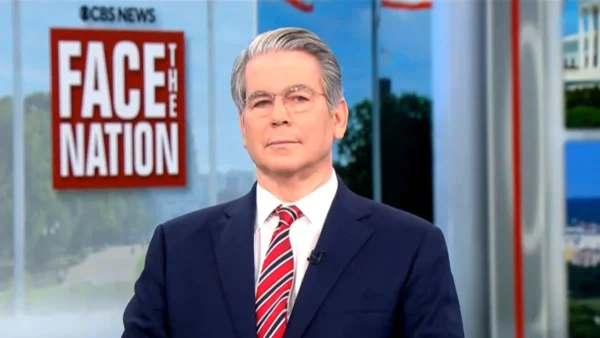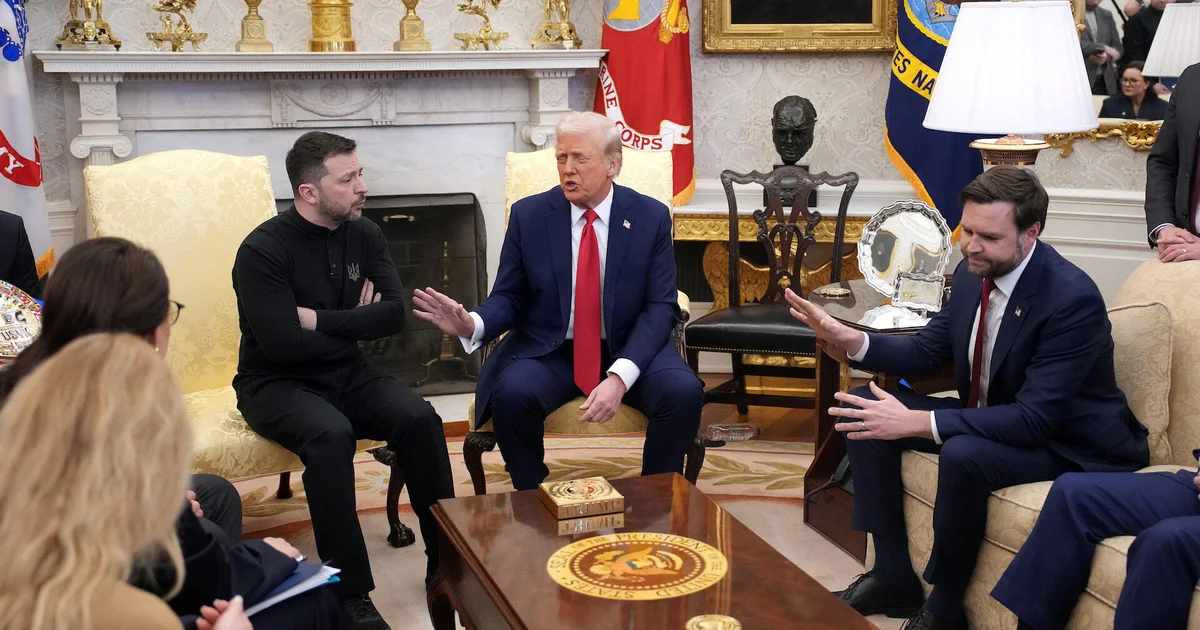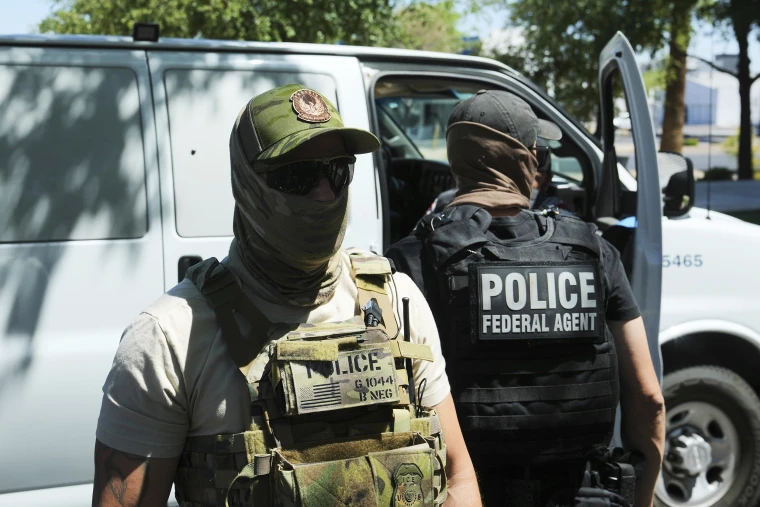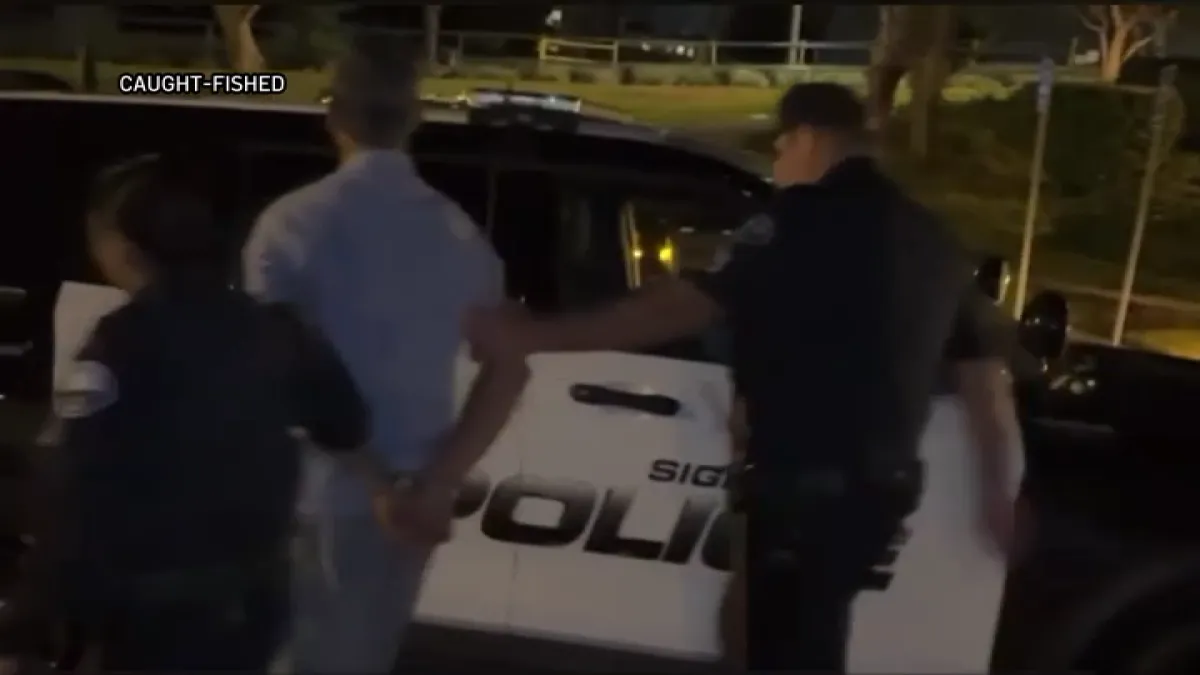Treasury Secretary Scott Bessent shared Sunday, March 2, that the possible economic deal between the United States and Ukraine has been put on hold after a heated meeting between President Trump and Ukrainian President Volodymyr Zelenskyy.

“All President Zelenskyy had to do was come in, sign the economic agreement, and show unequivocal solidarity… no distance between the American and Ukrainian people. Instead, he chose to blow that opportunity,” Bessent said. Instead, he decided to waste that chance. On Face the Nation with Margaret Brennan, he said these things.
The House was adjourned after an altercation between Trump and Vice President JD Vance. Ultimately, Zelenskyy was asked to step down, and the multibillion-dollar agreement was never completed.
During the meeting, Zelenskyy expressed doubt about the viability of a peace deal with Russia, pointing out that Russian President Vladimir Putin has repeatedly breached ceasefire agreements, which were the leading cause of the breakdown. President Trump has repeatedly promised to end the war quickly if he is elected president again, even though there are presently no official peace negotiations in progress.
Zelenskyy reiterated Ukraine’s intention to sign the minerals agreement, describing it as”a crucial first step toward securing necessary security guarantees” despite the deal’s collapse. However, he stressed that more guarantees are required before Ukraine consents to a ceasefire.
“A ceasefire without security guarantees is simply too risky for Ukraine,” Zelenskyy wrote. “The Ukrainian people have endured three years of conflict, and they need to know America stands firmly with them.”
Instrumental in the agreement’s formulation, Bessent clarified that “it is impossible to move forward with an economic agreement if there is no path to peace.” Bessent stressed that Zelenskyy’s actions upset the planned sequence, even if the pact was initially meant to pave the way for a more extensive peace process.
Bessent stated that President Zelenskyy’s actions have thrown off the planned timing of the deal. “On Friday, we were ready to complete the agreement. ” He emphasized that the agreement was intended to strengthen the U.S.-Ukraine relationship and send a clear message of solidarity to Russia, not merely to benefit the economy.
Bessent said, “The most disappointing part of Friday’s events was that President Trump had hoped to use this agreement to solidify the partnership between our nations, demonstrating to Russia that the U.S. and Ukraine were aligned and unwavering.” He also took issue with the dispute’s public character, in which Zelenskyy questioned the agreement in front of cameras. “He should have done that privately, not in front of the world.”
Bessent said that the U.S. will wait to see what Zelenskyy does next, but he cautioned that any future economic deal would be “rendered irrelevant if Ukraine continues the conflict.” He underlined that the United States does not want to see the war continue and restated Trump’s commitment to engaging in peace talks.
Trump’s congressional backers, who defended the president, deemed Zelenskyy’s actions unacceptable. Rep. Mike Turner described Zelenskyy’s strategy as “inappropriate,” saying the meeting “should have been a diplomatic victory” for Ukraine.
“Instead of embracing the opportunity, he turned it into a debate on American security guarantees, which was a diversion from the potential success of the agreement,” Turner said.

Sen. Mark Kelly, who also appeared on Face the Nation, said that Zelenskyy was “cornered” and “bullied” by Trump and Vance, but he acknowledged that sensitive talks should have remained confidential. Kelly claimed that the collapse of negotiations favored Russian President Vladimir Putin and hurt the United States globally.
According to Kelly, “Putin is the true winner here.” “It was a sad day for American diplomacy. It was a dumpster fire of a meeting, leaving us worse.”
The outcome of this tense meeting has left the future of U.S.-Ukraine relations uncertain. The economic deal was initially seen as a step toward strengthening ties and setting the stage for broader peace talks, but the collapse of discussions has left both sides at a crossroads. While President Trump and his administration remain focused on finding peace, the ongoing friction between the U.S. and Ukraine raises questions about future cooperation.
As the situation evolves, both leaders will face the challenge of navigating a complex diplomatic landscape, balancing national interests, security concerns, and the desire for a peaceful resolution to the ongoing conflict with Russia. The following steps will be pivotal in determining whether the U.S.-Ukraine relationship can recover or if the divide will continue to deepen.








